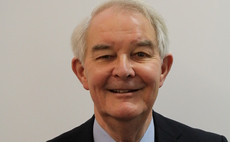AMNT
Industry
Association has urged TPR to improve the support available to trustees
Industry
Professional Pensions finds out how things have changed for trustees
Industry
Former pensions minister adds VfM framework unlikely to be implemented soon
Industry
Paul Tinslay says all sole trustee models should be considered separately
Industry
AMNT said schemes relying on sole trustees are ‘weakening protection for members’
Appointments
Sophie Dapin and Ben Marshall were elected committee members following the AGM
Industry
Janice Turner urges other MNTs to investigate the framework
Industry
AMNT said lack of action is hindering market competition and investment decision making
Investment
Explicit demand on manager votes should boost scheme voices at AGMs, says taskforce
Industry
Resignation will become affective after a committee meeting on 16 August











